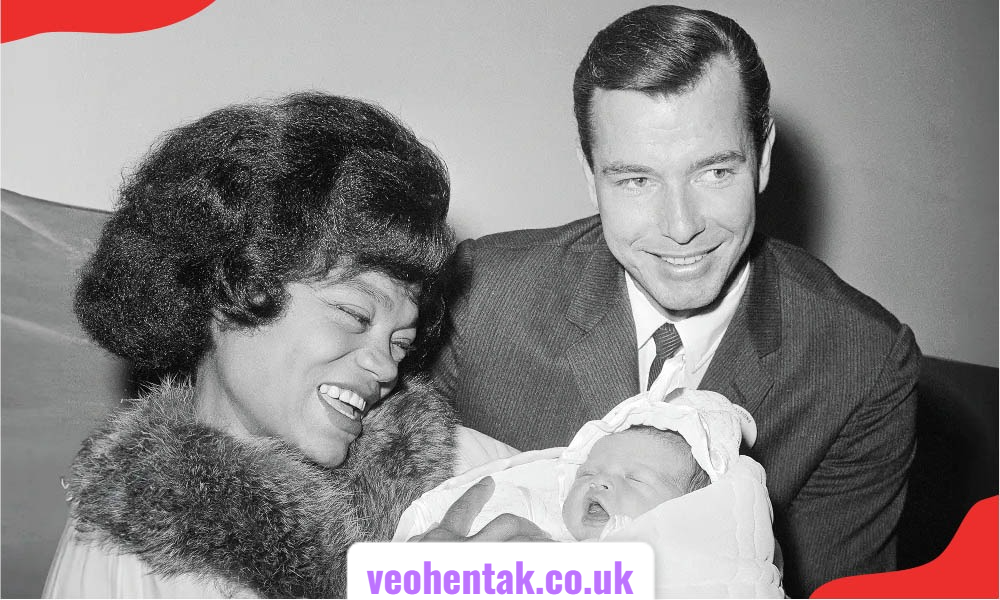John William McDonald is widely known for his pioneering work in cultural preservation, academic research, and heritage education. He reshaped the global understanding of how historical knowledge is archived, shared, and protected for future generations. By promoting ethical collaboration with communities, advancing digital archiving, and supporting educational reforms, he helped establish international standards that ensure cultural heritage remains accessible, respected, and accurately represented.
Early Life Influences and Academic Spark
The early years of John William McDonald were shaped by deep curiosity about storytelling, culture, and the way memories pass between generations. Growing up in a historically rich environment, he developed a fascination with artifacts, local traditions, and oral histories. This interest later guided him toward studies in anthropology, archival science, and public history. His academic path demonstrated that heritage preservation was not simply an intellectual pursuit but an emotional connection to identity, community, and human continuity. These early influences formed the foundation for his lifelong mission of protecting cultural memory.
Exploration of Cultural Diversity and First Fieldwork
His first major fieldwork experiences introduced him to the complexity and diversity of cultural expression around the world. He discovered that every community uses unique ways to record its history—through music, language, ritual, craftsmanship, and storytelling. Rather than observing from a distance, he actively engaged with communities, learning directly from elders and local historians. This approach taught him that meaningful preservation requires collaboration, mutual respect, and a willingness to listen without imposing external interpretations or biases on cultural materials.
Academic Breakthroughs and Research Excelled
McDonald became well known for developing accessible frameworks to document cultural heritage in ways that honored community ownership. His publications challenged traditional scholarship that treated artifacts as isolated objects. Instead, he argued that heritage should include lived experience, memory, and cultural meaning. His research demonstrated that ethical scholarship needs to prioritize authenticity, transparency, and shared decision-making. These concepts were celebrated across universities and strengthened global academic interest in responsible cultural preservation.
Leadership in Museum and Archival Innovation
Museum practices underwent major transformation during McDonald’s career. He advocated for shifting away from elitist collection-focused models and toward public-centered interpretation. He emphasized that museums must represent cultures as living, evolving entities rather than static history displays. Under his influence, archives and exhibitions began integrating personal narratives, audio records, photographs, and oral histories. These innovations created immersive learning experiences that were more culturally inclusive and more accurate reflections of heritage.
Technology and the Future of Digital Cultural Preservation
One of McDonald’s most influential achievements was promoting the integration of digital tools for cultural preservation. He encouraged the development of online archives, 3D artifact imaging, and multilingual databases to ensure long-term accessibility. His vision demonstrated that technology, when used responsibly, can protect cultural knowledge rather than erase it. Today, many digital museum platforms and cross-institution databases operate using principles inspired by his preservation blueprint.
Working with Indigenous Knowledge Keepers
Collaboration with Indigenous communities became a defining element of his legacy. He advocated that cultural knowledge rightfully belongs to the community it originates from, not to external institutions. Projects led by McDonald ensured that cultural materials remained accessible locally and were interpreted with cultural approval. His work helped stop destructive academic practices of extraction, replacing them with respectful partnerships that empower Indigenous voices and affirm cultural sovereignty.
Policy Influence on International Preservation Standards
His recommendations strongly influenced the global shift toward heritage policies that protect cultural rights. Government organizations recognized the need to create legal safeguards for community ownership of stories, artifacts, music, and knowledge systems. These policy changes reflected McDonald’s belief that preservation must never come at the cost of community identity. Through workshops, advisory roles, and international conferences, he helped institutions implement ethical guidelines that are now fundamental to the heritage sector.
Education and Mentorship of Heritage Professionals
McDonald became a respected mentor for students entering heritage studies, anthropology, museum science, and cultural research. His teaching philosophy empowered each learner to become an advocate for cultural memory. Students were encouraged to explore history with empathy rather than superiority and to seek collaboration rather than control. Many of his mentees now hold leadership positions in cultural preservation organizations around the world, continuing the values they learned from him.
Also read this: Wat Wax: The Ultimate Multi-Purpose Guide for DIY, Skincare & Beyond
Recognition and Awards Beyond Academia
Throughout his career, he received numerous awards acknowledging his commitment to history and cultural integrity. Although he valued recognition, he consistently emphasized that his success was rooted in collective work with communities and preservation partners. Instead of focusing on personal achievement, he used his visibility to raise awareness for cultural endangerment worldwide. Public attention helped inspire new interest in heritage conservation at both local and global levels.
Inspiring the Public to Value Cultural Memory
McDonald’s work extended beyond academic circles through documentaries, public lectures, exhibits, and accessible publications. He believed that cultural preservation should inspire everyday people, not just professionals. His communication style made history feel personal rather than distant. By encouraging families, schools, and communities to preserve their own traditions and stories, he helped society understand that heritage lives in daily life—not only in museums and institutions.
Continued Global Impact Across Research Fields
His legacy influenced a wide range of disciplines beyond history and anthropology. Archivists, sociologists, linguists, and documentary filmmakers frequently reference his conceptual frameworks. These professionals continue to apply his community-centered methodology to new fields of historical research. His name is often mentioned alongside transformative thinkers who redefined ethical scholarship, making John William McDonald an enduring figure in discussions around memory and cultural documentation.
Ethical Responsibility at the Core of His Work
McDonald maintained that scholars must first be responsible guests within any community they engage with. Ethical research must protect dignity and ensure that cultural representation is not distorted for academic gain. He believed in equity between researcher and informant, insisting on transparency and ongoing collaboration. His ethical framework became an essential reference point for universities and cultural institutions that sought guidance in respectful heritage practices.
Heritage Education Entering the Digital Era
Educational institutions across the world redesigned their heritage studies programs with inspiration from McDonald’s publications. Courses began incorporating fieldwork, digital archiving, intercultural exchange, and community-driven projects. His work demonstrated that real learning occurs when students actively participate with community partners rather than simply analyze from a distance. The results shaped a more dynamic, responsible, and socially aware generation of heritage professionals.
The Keyword’s Symbolic Presence in Academic Literature
Academic literature often cites the influence of John William McDonald when discussing the evolution of collaborative research practices. Scholars across generations acknowledge his pioneering contribution to transforming how cultural memory is recorded and shared. Over time, his name became associated with dignified scholarship and ethical preservation, ensuring that his intellectual legacy remains embedded in the future of global heritage education.
Lasting Global Legacy and Preservation of Human Identity
Decades after the beginning of his career, the core values that guided John William McDonald still shape cultural preservation worldwide. Museums, universities, and historical organizations continue to adopt his standards, ensuring that cultural identity remains protected during rapidly changing times. His life’s work serves as a reminder that heritage is not only about the past—it is also a foundation for belonging, resilience, and human connection across generations.
Conclusion
The life and work of John William McDonald serve as a powerful model for how cultural heritage should be approached—with respect, collaboration, and shared responsibility. His influence spans education, digital archiving, policy reform, and community-centered research. By advocating for ethical preservation that honors cultural identity, he inspired countless scholars and institutions to rethink their role in protecting history. His legacy continues to shape global heritage standards, ensuring that the memories and traditions of communities remain alive for future generations.
FAQs
1. Who is John William McDonald known as in the heritage field?
A leading figure in ethical cultural preservation and heritage education.
2. What made his preservation model groundbreaking?
It prioritized community ownership and collaboration rather than institutional control.
3. Did he contribute to digital heritage?
Yes, he played a major role in digital archiving innovation.
4. Did he work with Indigenous communities?
Yes, he partnered with Indigenous groups to protect cultural sovereignty and knowledge.
5. How did he influence museums?
He encouraged inclusive, narrative-driven exhibits instead of traditional artifact-centered collections.
6. Are his methods still used today?
Many universities and heritage organizations continue using his principles.
7. What is the core value of his philosophy?
That cultural heritage belongs to the people it originates from, not external institutions.
Fore more info: veohentak.co.uk


